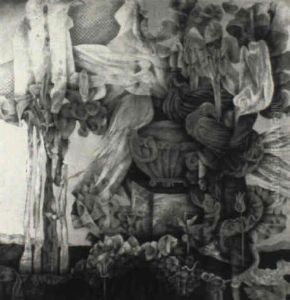Franciszek Mielnicki Paintings
Franciszek Mielnicki was a Polish painter and graphic artist, whose career spanned several decades through the 20th century, a period marked by significant historical upheaval and transformation. Born in 1904, Mielnicki's early life and education were set against the backdrop of a changing Europe. He embarked on his artistic journey in a time when Poland was re-establishing its sovereignty after over a century of partitions by Austria-Hungary, Germany, and Russia.
Mielnicki's art was deeply influenced by the socio-political context of his times, including the interwar period, World War II, and the subsequent establishment of communist rule in Poland. His work often reflected themes of human suffering, resilience, and the Polish landscape, which he depicted with a combination of realism and emotional expressivity. He was adept in various mediums, including oil painting and graphic arts, which allowed him to explore and express a wide range of subjects and themes.
Throughout his career, Mielnicki remained committed to portraying the Polish experience, from the beauty of its landscapes to the complexities and tragedies of its history. His contributions to Polish art were recognized with several awards and honors, and his works are part of collections in museums and galleries both in Poland and internationally. Despite the challenges posed by the political environment, particularly during the communist era when artistic expression was closely monitored and often restricted, Mielnicki's art remained a powerful testament to his skill, vision, and resilience.
Franciszek Mielnicki passed away in 1990, leaving behind a rich legacy that continues to inspire and move audiences. His dedication to his craft and his ability to capture the essence of the Polish spirit through his art have cemented his place among the notable Polish artists of the 20th century. His life and work serve as a reminder of the role of art in reflecting and shaping the human experience amidst the changing tides of history.

